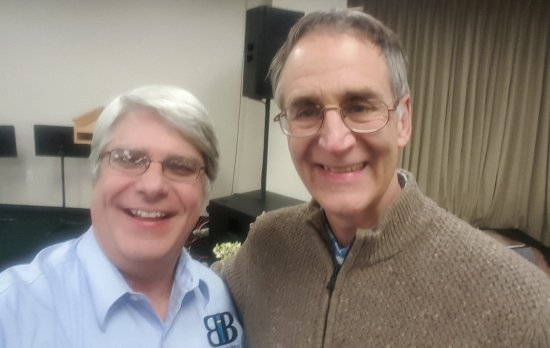
Dr. John Sanford is a brilliant geneticist. He has published more than 100 papers in the peer-reviewed literature and holds several dozen patents in genetics. Most notably, he was the primary inventor of the gene gun, which allows scientists to take genes from one species and insert them into another species so that they work. For 18 years, he was a professor of plant genetics at Cornell University.
When it comes to his worldview early in his career, he puts it rather clearly:
I was totally sold on evolution. It was my religion; it defined how I saw everything, it was my value system and my reason for being.
In his incredible book, Genetic Entropy and the Mystery of the Human Genome, he tells the reader some of what led him to change his mind. He defines the “Primary Axiom” as the belief that man is merely the product of random mutations plus natural selection. He then writes:
Late in my career, I did something which for a Cornell Professor would seem unthinkable. I began to question the Primary Axiom. I did this with great fear and trepidation. By doing this, I knew I would be at odds with the most “sacred cow” within modern academia…To my own amazement, I gradually realized that the seemingly “great and unassailable fortress” which has been built up around the Primary Axiom is really a house of cards. The Primary Axiom is actually an extremely vulnerable theory – in fact, it is essentially indefensible. Its apparent invincibility derives largely from bluster, smoke, and mirrors. (2nd edition, p. vi)
Once he realized that the Primary Axiom is indefensible, he had to reevaluate his entire worldview. He started off coming to the conclusion that there must be a Creator, and then he began submitting to Jesus. He left Cornell University specifically because the academic environment was hostile to Christian values, but he has not stopped using his scientific talents. He continues to publish in the peer-reviewed literature, doing original research that demonstrates how indefensible the Primary Axiom is (see here, here, and here, for example). He is also president of Logos Research Associates, which is focused on original scientific research related to the field of origins.
As those who have read this blog know, science turned me from an atheist into a Christian. While science was clearly a part of Dr. Sanford’s conversion, he makes it clear that his experience was different from mine:
I would not say that science led me to the Lord (which is the experience of some). Rather I would say Jesus opened my eyes to His creation—I was blind, and gradually I could see. It sounds simple, but it was a slow and painful process.
On a personal note, I read Dr. Sanford’s book shortly after it was published in 2005, and I was impressed. Twelve years later, I met him at a Creation Science Fellowship Meeting in California, where we were both speakers. A few months after that, he came to Anderson University to visit with me and discuss a research project that we are currently collaborating on. I have to say that in addition to being a brilliant scientist who is deeply committed to the Lord, he is a truly gentle soul who wants to show everyone the love of Christ. I am thrilled to call him my brother.

Amen!
Great story, Jay!
He’s one of my favorite scientists to watch speak! I have an odd question for you / him. As a Catholic I’m somewhat concerned that Vatican currently allows GMO wheat as proper matter for Eucharist. Its not a safety issue for me, but rather a theological one. It is Catholic doctrine that the Eucharist must be made with wheat and no other “species”. I’ve also heard some Rabbis address this issue concerning Kosher GMO food products (on the possibility of non Kosher genes being spliced into Kosher foods). Catholics have merely said that GMO wheat is”acceptable”. Rabbis (to my surprise) have also granted Kosher status to these foods. I think the analogy a Rabbi used suggested GMO science was like borrowing letters from words to help spell other words. For instance, if you need to borrow an O out of “Pork” to help you spell “Corn” the “O” is not tainted from where it came. Curious your comments on this?
As a Protestant, this isn’t a theological issue for me, but I would agree with the Catholic and Rabbinical views. Addition or deletion of a few genes is not enough to change an organism’s genus/species. Thus, I would consider GMO wheat to be wheat.
This is awesome! I followed your link (https://creation.com/geneticist-evolution-impossible) and found this comment from Sanford:
“On the flip side, almost all beneficials (to the extent they occur) are immune to the selective process—because they invariably cause only tiny increases in biological functionality.”
This exact difficulty occurred to me years ago when I was watching a mainstream nature documentary. I think this is the first time I’ve heard someone else point it out. I raised this challenge to a smart atheist friend of mine a few years ago and his explanation made the whole thing seem even less plausible. When I pressed him further on it, he had no answer.
Thanks for sharing Jay!
You might like his book, Doug, since he goes into the argument in more detail, using the Kimura distribution to show why it’s like that.
Thanks for the recommendation!
This is like the third time you’ve done a story on how someone questioning Evolution lead to them abandoning it. Says a lot about the foundations of evolution.
P.S Thanks for doing my suggestion, Dr Wile!